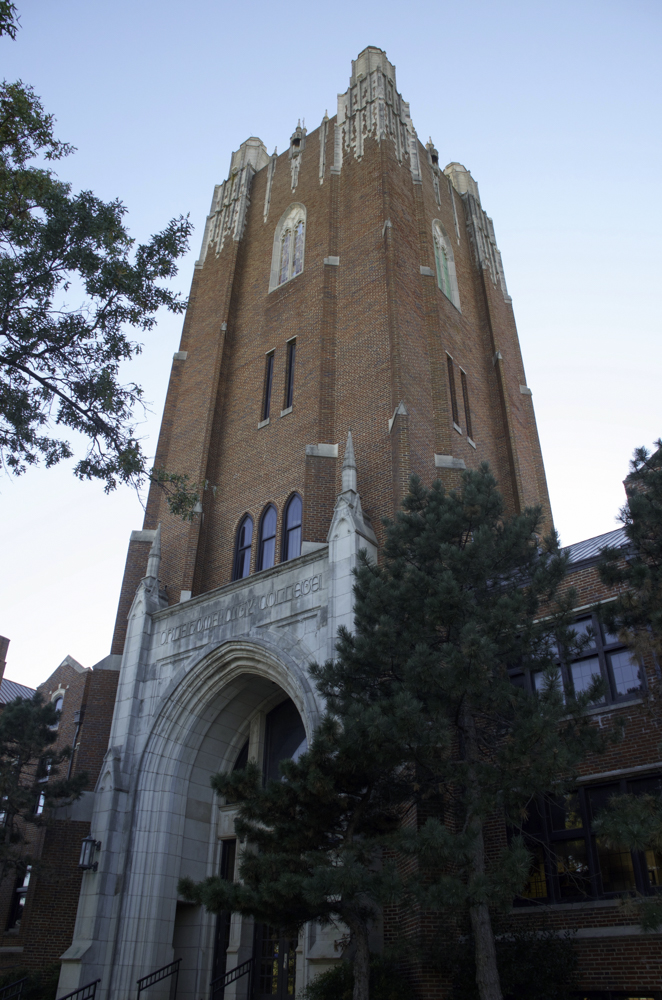
OCU has condensed the spring 2021 semester to continue mitigating the spread of COVID-19 while the university is open.
The OCU Communications Office sent an email to the campus community Sept. 22, announcing the calendar for the spring 2021 semester. The university will open Jan. 4, and campus housing will close May 7. Spring break will not be observed next semester.
George Sims, interim provost, said the academic calendar is usually planned several years in advance by the registrar, presidential Cabinet and provost. Due to the circumstances of the pandemic, Sims initiated the process to change the calendar by asking for a recommendation from the registrar, which he then presented to the Academic Programs and Standards Committee, a committee of faculty and administrators across the campus. The proposal was then presented to the Academic Council, which is composed of the deans and chairs of the other faculty committees. After approval by the academic council, it was then presented to OCU President Martha Burger and members of her Cabinet for approval, Sims said.
Levi Harrel, dean of students, said the start of the semester was delayed by two weeks in order to allow for a two-week period between major holidays and the campus reopening, which will account for the incubation period of COVID-19. He said students returning to on-campus residence halls will need to present a negative COVID-19 test before moving in, as they did at the start of the fall 2020 semester. He said spring break will be removed for similar reasons as fall break, to prevent increased travel and potential opportunities for infection and spread of COVID-19.
“We understand that students will remain on campus, not leaving campus, not going out of state, generally speaking, and so less concern for contracting of the virus in other places and then bringing it back to campus,” Harrel said.
Sims said there were three main factors the university chose to follow a condensed calendar schedule for another semester.
“So, those were really three factors: one, allowing enough time after the holidays for anybody who’s exposed to be safe again. One was to reduce the risk that folks would travel and bring the exposure back. And third, to hold the end of the semester so that it didn’t interfere with preparations and plans people have for the summer,” he said.
Sims said the end of the semester was also maintained in order to keep end-of-the-year events such as graduation and commencement on schedule.
Sims said Amy Ayres, vice president of student affairs, and Harrel have received feedback from students who have experienced stress due to the condensed schedule. He said fall break and spring break are generally good academic practice, and he too is feeling fatigued.
“I hope it is possible to understand that given the whole menu of bad choices we have to make, this is kind of a less bad choice,” Sims said. “I know it’s hard, but I would still say that it’s still the least bad choice of all the bad choices we have to make.”
Abby Banks, political science/philosophy/economics junior and president of the Student Government Association, said she has biweekly meetings with Amy Ayres to relay input she has heard from students on campus regarding issues such as the calendar change. She said faculty and administrators are very aware of the stress students are feeling due to the condensed calendar.
“Ultimately, I think we as students have to express those opinions to our professors and say like, ‘hey, we need a day off,’ right, like, ‘we need one day out of our semester that we can just not have work due,’” she said. “Because, ultimately, this decision that the university made, while it’s not ideal for our students’ mental health, it is ideal for our physical safety, in the sense that it is making sure that we aren’t going out of state and doing things that are going to cause us to have to go home indefinitely because of COVID-19.”
She said she hopes the professors and deans recognize the pressure on students and implement changes that may not be university-wide, such as a mental health day for students.
Banks said schoolwork and students’ mental health are always priorities over extracurricular activities, including SGA. She said it is important for students to communicate their needs to faculty members and housing officials, who cannot help if they aren’t aware of a problem.
Banks said students with any questions, comments or concerns can email sgapresident@okcu.edu. She said all messages received via this email are relayed to university administrators, and students should use SGA to its full potential to make their voices heard.
Contributing author: Paul Dower


Leave a Reply